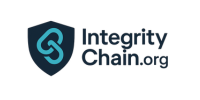Slync.io - CEO Chris Kirchner’s $25M Fraud & Money Laundering

Slync.io, a Dallas-based logistics-tech startup co-founded by Chris Kirchner, collapsed in scandal after Kirchner was convicted in January 2024 for misappropriating at least $25 million of company funds. He used the money to fund a lavish personal lifestyle: luxury real estate, a private jet, sports suites, and cars. Kirchner was sentenced to 20 years in prison and ordered to pay $65 million in restitution.
Timeline of Key Events
| Date | Event |
|---|---|
| Feb 2023 | FBI raids Kirchner’s home; wire fraud charges filed |
| Jan 25, 2024 | Jury convicts him on 4 counts of wire fraud and 7 counts of money laundering |
| Jul 11, 2024 | Sentenced to 20 years in prison and ordered to pay $65 million in restitution |
Fraud Mechanics
- Diverted Funds: At least $25 million transferred to personal accounts.
- Luxury Spending: Funds used to purchase private Gulfstream jet, $500K sports suite, Rolls-Royce, and others.
- Money Laundering: Structured transfers to hide the origin of funds; jury convicted on seven counts.
Financial Overview
- Misappropriated Funds: Minimum $25M
- Personal Asset Value: $16M jet, car(s), sports suite
- Restitution Ordered: $65M — covering losses + penalties and asset recovery
Legal Proceedings
- Charges: Wire fraud and money laundering.
- Conviction: January 2024 federal jury.
- Sentence: 20 years prison + $65M restitution.
- FBI Commentary: Highlighted lavish personal purchases with investor funds.
Impact & Lessons
- Governance Breakdown: A CEO able to unilaterally redirect company capital shows a lack of internal controls.
- Due Diligence Warning: Investors are advised to review corporate bank statements and asset usage regularly.
- Reputation Damage: The damage extends to the entire logistics-tech sector, increasing investor caution.
Takeaways
- Implement multi-signature controls for company bank transfers.
- Monitor executive expenses closely, particularly for large or luxury purchases.
- Structured transaction monitoring—any unlinked transfers should trigger audits.



